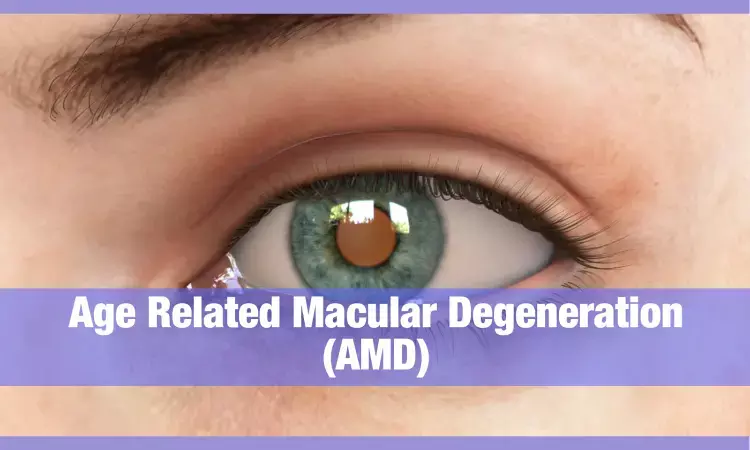- Home
- Medical news & Guidelines
- Anesthesiology
- Cardiology and CTVS
- Critical Care
- Dentistry
- Dermatology
- Diabetes and Endocrinology
- ENT
- Gastroenterology
- Medicine
- Nephrology
- Neurology
- Obstretics-Gynaecology
- Oncology
- Ophthalmology
- Orthopaedics
- Pediatrics-Neonatology
- Psychiatry
- Pulmonology
- Radiology
- Surgery
- Urology
- Laboratory Medicine
- Diet
- Nursing
- Paramedical
- Physiotherapy
- Health news
- Fact Check
- Bone Health Fact Check
- Brain Health Fact Check
- Cancer Related Fact Check
- Child Care Fact Check
- Dental and oral health fact check
- Diabetes and metabolic health fact check
- Diet and Nutrition Fact Check
- Eye and ENT Care Fact Check
- Fitness fact check
- Gut health fact check
- Heart health fact check
- Kidney health fact check
- Medical education fact check
- Men's health fact check
- Respiratory fact check
- Skin and hair care fact check
- Vaccine and Immunization fact check
- Women's health fact check
- AYUSH
- State News
- Andaman and Nicobar Islands
- Andhra Pradesh
- Arunachal Pradesh
- Assam
- Bihar
- Chandigarh
- Chattisgarh
- Dadra and Nagar Haveli
- Daman and Diu
- Delhi
- Goa
- Gujarat
- Haryana
- Himachal Pradesh
- Jammu & Kashmir
- Jharkhand
- Karnataka
- Kerala
- Ladakh
- Lakshadweep
- Madhya Pradesh
- Maharashtra
- Manipur
- Meghalaya
- Mizoram
- Nagaland
- Odisha
- Puducherry
- Punjab
- Rajasthan
- Sikkim
- Tamil Nadu
- Telangana
- Tripura
- Uttar Pradesh
- Uttrakhand
- West Bengal
- Medical Education
- Industry
Sildenafil flops in Reduction of Risk of Age-Related Macular Degeneration, suggests study

Age-related macular degeneration (AMD) poses a significant public health concern, with its treatment remaining challenging. Prior studies suggested a potential preventive effect of sildenafil, commonly used for erectile dysfunction (ED), on AMD development. However, recent research challenges this notion, highlighting the need for further investigation.
AMD affects millions worldwide and is a leading cause of vision impairment. Treatment options, particularly for the advanced stages, are limited and burdensome. Sildenafil, initially developed for hypertension, found success in treating ED and has been hypothesised to prevent AMD by increasing retinal blood flow.
This study was published in BMC Open Ophthalmology by Han JED and colleagues. A retrospective matched open-cohort study analyzed data from the IQVIA Medical Research Data (IMRD-UK) primary care database, encompassing 307,384 male patients aged ≥40 years with ED. The study compared AMD incidence between sildenafil users (n = 31,575) and non-users (n = 62,155) over a 20-year period.
Key Findings:
• Among the study cohort, 234 sildenafil users and 398 non-users developed AMD during the follow-up period.
• After adjusting for confounders, including age, comorbidities, and socioeconomic factors, no significant difference in AMD incidence was observed between sildenafil users and non-users (adjusted hazard ratio [aHR], 0.99; 95% CI, 0.84 to 1.16).
• Subgroup analysis before the availability of over-the-counter sildenafil yielded similar results (aHR, 0.98; 95% CI, 0.83 to 1.15).
The study, led by Nicola Jaime Adderley, PhD, MPH, from the University of Birmingham, suggests that sildenafil use is unlikely to have a clinically meaningful preventive effect on AMD development. Despite prior hypotheses linking sildenafil to increased retinal blood flow and potential AMD prevention, real-world data did not support this notion.
Given the growing prevalence of AMD and the limited treatment options, understanding potential preventive measures is crucial. While sildenafil remains a widely used medication for ED, clinicians should not rely on it as a preventive strategy for AMD. Further research is needed to explore alternative preventive approaches and enhance AMD management strategies.
Reference:
Han JED, Subramanian A, Lee WH, et al Association of sildenafil use with age-related macular degeneration: a retrospective cohort study BMJ Open Ophthalmology 2024;9:e001525. doi: 10.1136/bmjophth-2023-001525
Dr Riya Dave has completed dentistry from Gujarat University in 2022. She is a dentist and accomplished medical and scientific writer known for her commitment to bridging the gap between clinical expertise and accessible healthcare information. She has been actively involved in writing blogs related to health and wellness.
Dr Kamal Kant Kohli-MBBS, DTCD- a chest specialist with more than 30 years of practice and a flair for writing clinical articles, Dr Kamal Kant Kohli joined Medical Dialogues as a Chief Editor of Medical News. Besides writing articles, as an editor, he proofreads and verifies all the medical content published on Medical Dialogues including those coming from journals, studies,medical conferences,guidelines etc. Email: drkohli@medicaldialogues.in. Contact no. 011-43720751


